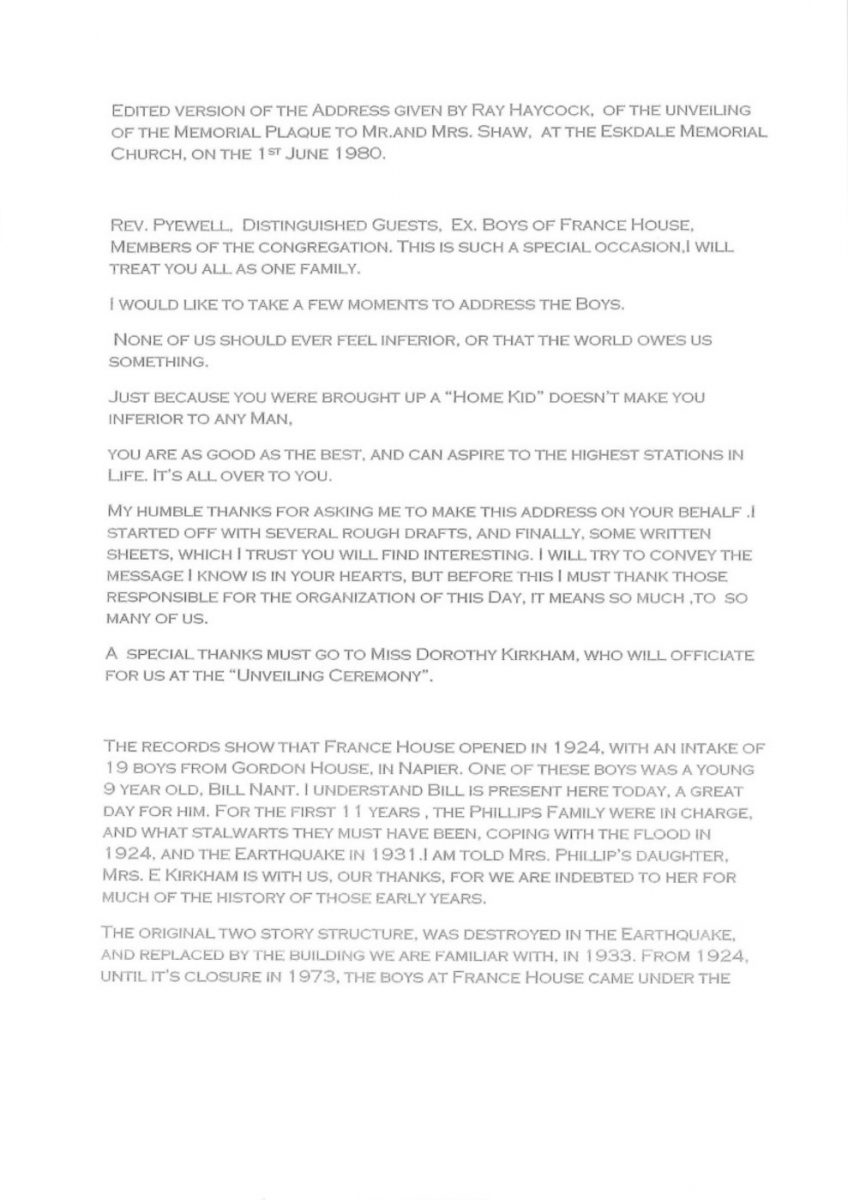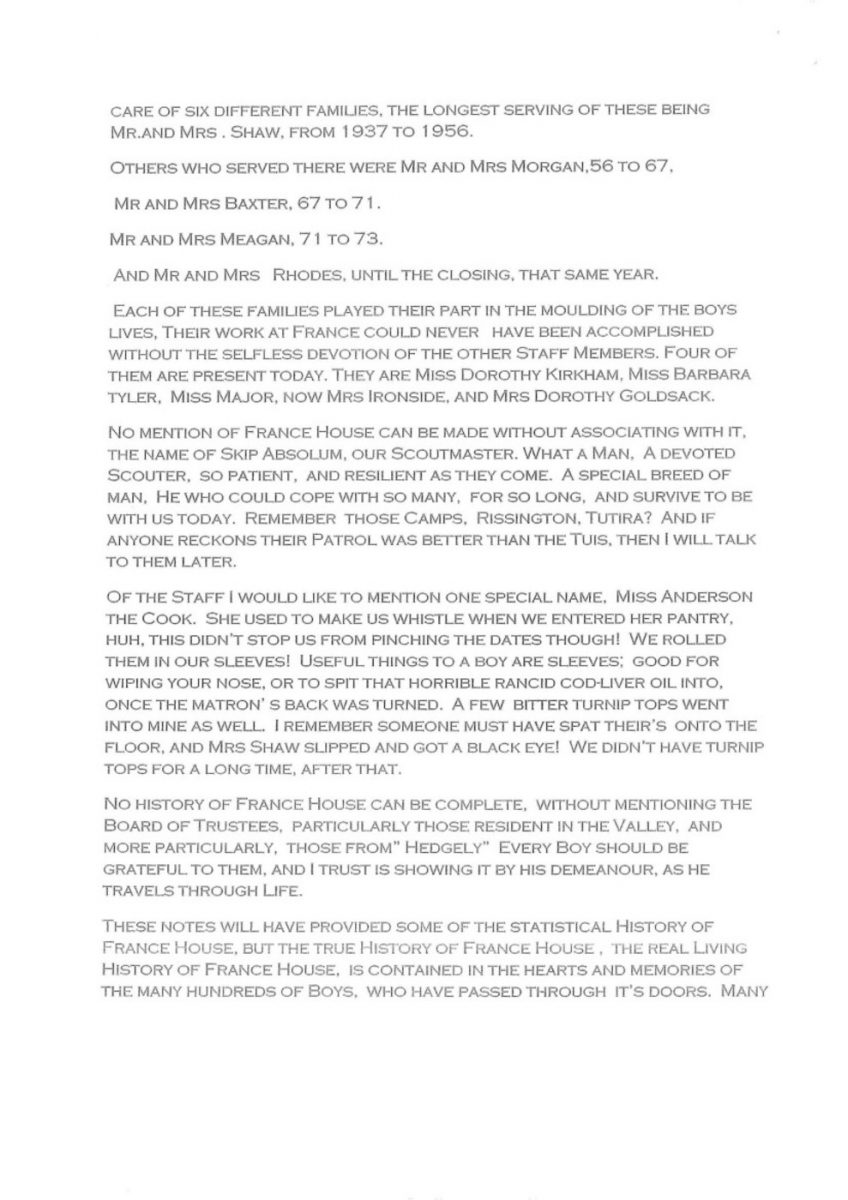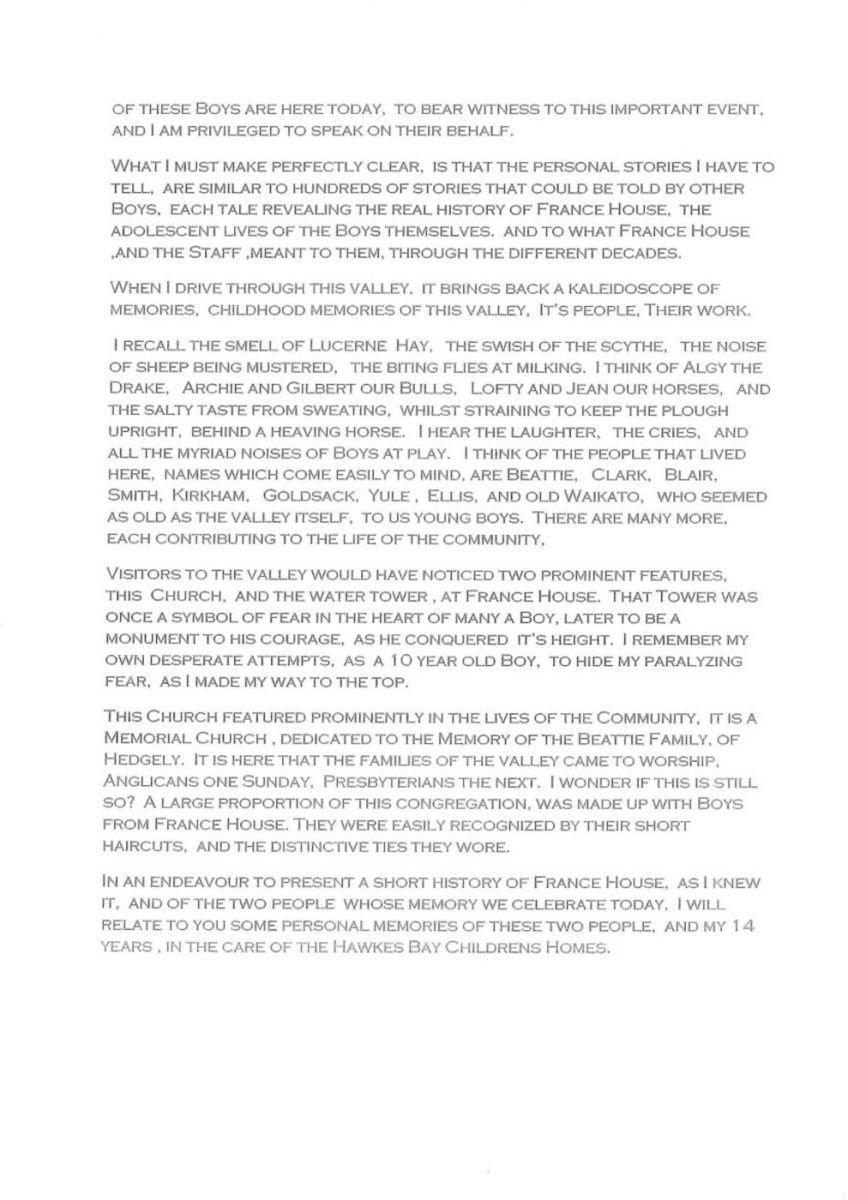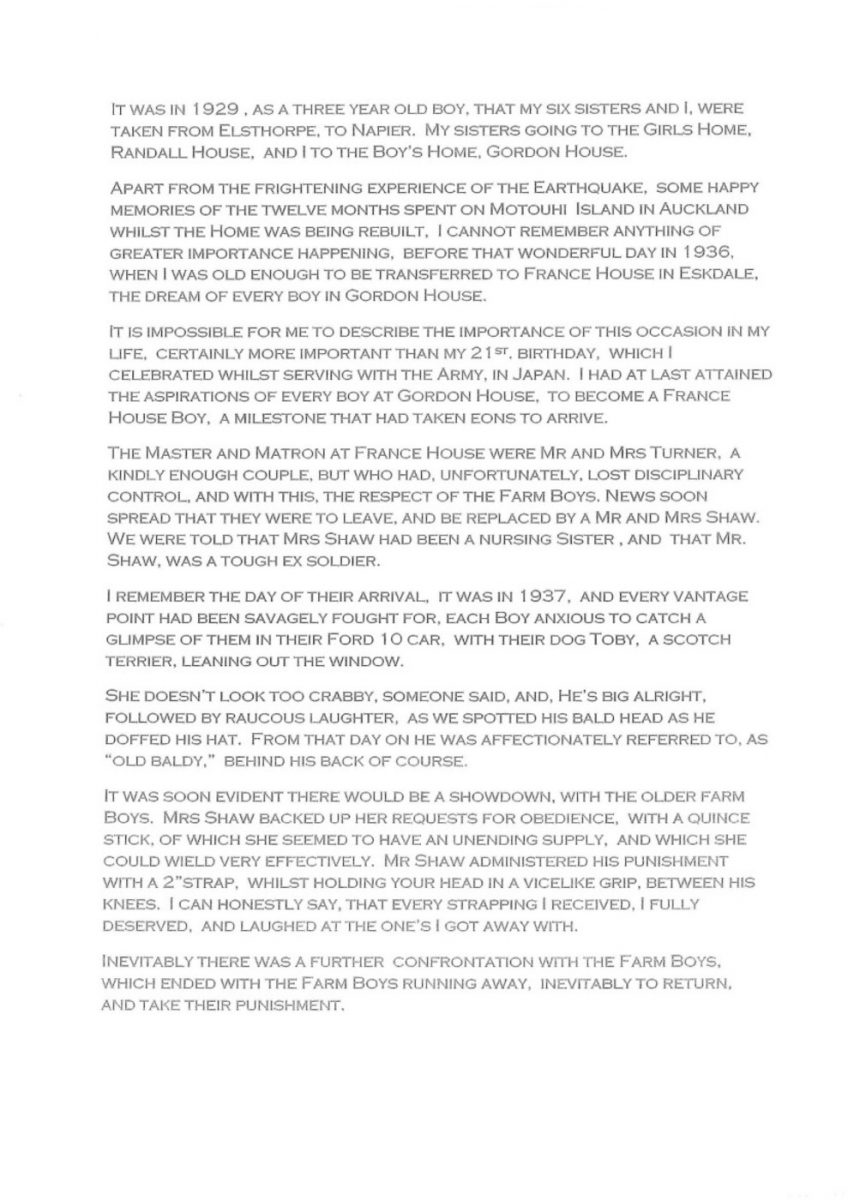Plaque Unveiling Address 1980
Original digital file
RobertsonNR1737_BigBrownBag_Haycock.pdf
Non-commercial use

This work is licensed under a Attribution-NonCommercial 3.0 New Zealand (CC BY-NC 3.0 NZ).
Commercial Use
Please contact us for information about using this material commercially.✖
Can you help?
The Hawke's Bay Knowledge Bank relies on donations to make this material available. Please consider making a donation towards preserving our local history.
Visit our donations page for more information.
Subjects
Format of the original
Typed documentDate published
1 June 1980 and January 2010People
- Skip Absolom
- Mr and Mrs Baxter
- Robert France
- Mrs Dorothy Goldsack
- Miss Dorothy Kirkham
- Mrs E Kirkham
- Mr and Mrs Meigan
- Mr and Mrs Morgan
- Bill Nant
- Mrs Phillips
- Reverend Pyewell
- Mr and Mrs Rhodes
- Mrs Hazel Shaw
- Les Shaw
- Mr and Mrs Turner
- Miss Barbara Tyers
- Misses Anderson, Major
- Other surnames - Beattie, Bellamy, Blair, Clark, Ellis, Smith, Waikato, Yule



















Do you know something about this record?
Please note we cannot verify the accuracy of any information posted by the community.